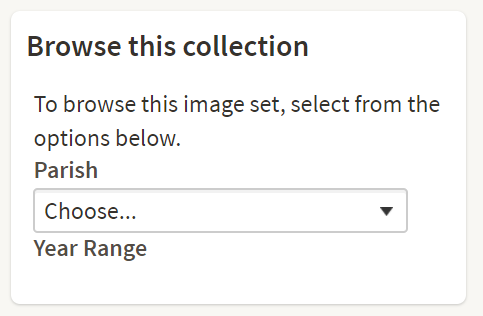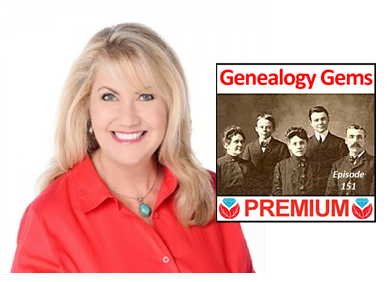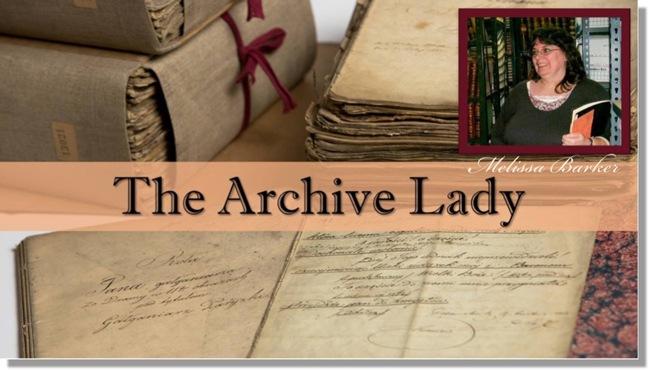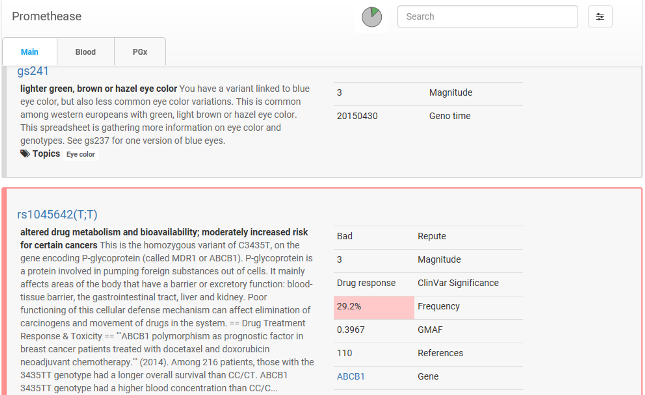Blog


US & UK Newspapers, Vital Records & More! New Genealogy Records Online This Week
Extra, extra! Thousands of pages of US and UK newspapers are newly online for your genealogy research. Also new this week are birth, marriage, death, and parish records for England and the United States, a large historic Irish photo collection and a unique family history research aid for Iceland.

Feature Photo: Newspapers
UK Newspapers, Parish Records and More
England: Parish records and newspapers
Ancestry.com got a big update recently to their English records! The following collections have been added for Derbyshire, England:
- Church of England Baptisms, Marriages and Burials, 1538-1812
- Church of England Baptisms, 1813-1916
 Church of England Marriages and Banns, 1754-1932
Church of England Marriages and Banns, 1754-1932- Church of England Burials, 1813-1991
Originals of these documents come from Derbyshire Church of England Parish Registers, and dozens of parishes are included. You can narrow your results by parish by selecting from the drop-down menu in the Browse this Collection box (shown here) on the right side of the page.
Also brand new this week are several newspapers for England, hosted by the British Newspaper Archive:
Hampshire: Hants and Berks Gazette and Middlesex and Surrey Journal 1892-1902
Oxfordshire: Thame Gazette 1857-1928 (some gaps).
Durham: Darlington & Stockton Times, Ripon & Richmond Chronicle 1847-1894 (some gaps).
 London: Barking, East Ham & Ilford Advertiser, Upton Park and Dagenham Gazette 1889-1909
London: Barking, East Ham & Ilford Advertiser, Upton Park and Dagenham Gazette 1889-1909
You can search the British Newspaper Archive for free, and they’ve recently created a brand new package: Save 31% with their 3 Month package for just £25.90! You’ll get access to over 22 million newspaper pages across Britain and Ireland, with more added every day.
Scotland: Parish records & newspapers
A new collection of Scottish parish records is now available at Ancestry.com: Extracted Parish Records, 1571-1997. The records in this collection include baptisms/christenings, burials, marriages, tombstone inscriptions, obituaries, tax lists, wills, and other miscellaneous types of records. For copies of the originals, “the microfilm number of pertinent corroborating records can often be found on the LDS Church’s FamilySearch site (www.familysearch.org) in the Family History Library Catalog.”
Also new for Scotland, the Paisley & Renfrewshire Gazette newspaper is available at the British Newspaper Archive. Years span 1875-1908 (except 1877) and it was published by Newsquest in Paisley, Renfrewshire, Scotland. 1,722 issues comprised of 14,000 pages are now available to view online.
Historic Irish photos & newspapers
More than 10,000 historic pictures from have been added to a folklore website, duchas.ie. A recent article announcing the launch stated that “the Collection contains photographs taken by professional photographers and by collectors working with the National Folklore Commission, amongst others, and are classified under 14 different topics including: festivals; holy wells; settlement; folklore collection; and games and pastimes.” A large number of the photographs date from the early 20th century.
The British Newspaper Archive has added a new newspaper title from Antrim, Northern Ireland: Carrickfergus Advertiser 1884-1895, 1897-1910. Nearly 1,400 issues and over 5,000 pages are included in this new digitized collection.
Iceland: New language resource
If you have ancestors from Iceland, this unique resource is for you! A new website has made Icelandic spelling, declension, and etymology dictionaries now free online. From Iceland Magazine: “In an effort to protect the Icelandic language in a time of smartphones and computers, The Árni Magnússon Institute for Icelandic Studies at the University of Iceland has opened a website which offers free access to the institute’s large catalogue of dictionaries, including etymology- and spelling dictionaries and the institute’s declension database for the Icelandic language.” Here’s a tip: The site is in Icelandic, but use Google Translate to navigate in English! Plus check out our favorite resources for pronunciation help.
United States: Vital records & more
California. County Birth, Marriage, and Death Records, 1849-1980 are new online at Ancestry.com. This collection contains records from various counties throughout California, and you can use the drop-down table to search by the county, record type, and year range of your ancestor’s life events.
Connecticut. New records are available online at Findmypast for Connecticut baptisms, church records, and burials from the 1600s-1800s. These records cover various towns and have been transcribed from public domain records.
Georgia. New from the Georgia Archives: Colonial Conveyances. This collection contains 11 volumes of property transactions between private citizens in the Colony of Georgia from 1750-1804. Each book contains a grantor index at the end of the volume.
Maryland. The University of Maryland Student Newspapers Database has recently launched. From the press release: “[This collection] provides keyword and date access to issues of The Diamondback and its seven predecessor newspapers from 1910 to October 1971. Users can search names and topics across all the issues, as well as focusing in on a particular day, month, or year of publication or publication title.”
 Want more help with newspapers, Google Translate, and more? Genealogy Gems Premium Members can watch full-length video classes by Lisa Louise Cooke on those topics and more! Sign up today
Want more help with newspapers, Google Translate, and more? Genealogy Gems Premium Members can watch full-length video classes by Lisa Louise Cooke on those topics and more! Sign up today
Disclosure: This post contains affiliate links and Genealogy Gems will be compensated if you make a purchase after clicking on these links (at no additional cost to you). Thank you for supporting Genealogy Gems!

Top 5 Questions I Get Asked as an Archivist
As an archivist working in a county archives every day, I get asked lots of questions about researching in archives and records preservation. Most questions come from my favorite people: genealogists! In celebration of Ask an Archivist Day, here are the top 5 questions I get asked as an archivist–and my answers.

Today is “Ask an Archivist” day on Twitter, so Lisa asked me to share the top 5 questions I am asked all the time. Let’s jump right in!
Top 5 Questions I Get Asked as an Archivist
Archivist Question #1: What kinds of records can I find in an archive?
This is a great question that I never get tired of answering! Every archive is different in what records they have in their collections. That is why it is very important for genealogists to contact the archive and ask them about the various records they have available. I can tell you that archives have records that are unique, not online and just waiting for the genealogist to discover them. You can find records like photographs, oral histories, scrapbooks, store ledgers, and so much more.

Archivist Question #2: Why do I need to wear gloves when handling photographs?
When handling photographs, archivists almost always ask researchers to put on a pair of gloves. The reason for this is because the oils and dirt on our hands can transfer to photographs and will eventually damage the photographs. Wearing gloves ensures that damage will not occur but genealogists still get to enjoy holding original family photographs.

Archivist Question #3: What is a finding aid?
A finding aid is the “road map” to a manuscript collection. The finding aid lists what is contained in the collection and is arranged in a folder-by-folder, box-by-box listing. When accessing manuscript collections at any archives, the finding aid will help the genealogist know what is in the collection.

Archivist Question #4: Are there family histories in the archives?
Yes! Family histories are found in archives. Many of these family histories are in the form of family group sheets, compiled family histories, and even whole collections of family histories that have been donated to the archives. These family histories can be found in the vertical files collection or manuscript collections. When doing research at an archive, genealogists need to ask the archivist about family histories.

Archivist Question #5: Why aren’t all records in the archives digitized and online?
This is a question that I get all the time by genealogists who can’t travel to the archives but want to see the records. I wish all the records in all archives could be magically digitized and put online but the truth is that it takes money, equipment, and staff hours to digitize the vast amounts of records that are in all of our archives. While there are more and more records coming online every day, there are still records that may never be online and will need to be accessed at the archives.
 Learn More from The Archive Lady
Learn More from The Archive Lady
Jennifer recently wrote in with a question about how to archive family history documents. My answer in this blog post will help you care for your precious possessions, too. Then, listen to the Genealogy Gems Podcast to hear more from me, The Archive Lady!

Inexpensive DNA Health Reports: Recommended by Your DNA Guide
DNA health reports are becoming a more common option for those who test their DNA for family history. Should you order a DNA health report? Here are the ones Diahan Southard recommends most. Her top pick is inexpensive, available to all testers, and promises confidentiality for your genetic data.

DNA Health Reports May Have Saved a Life
At Rootstech 2017 I was sitting at my booth answering questions and talking with many of you about your experience with genetic genealogy. A woman came up to the booth and exclaimed, “You saved my son’s life!”
She went on to explain that she had come across my booth at a previous RootsTech and engaged me in a discussion about using this kind of genetic genealogy test to find out more about a person’s health. I explained that while the focus of these genetic genealogy companies is to further our ancestral research, the DNA that they test does contain some health information. In fact, 23andMe used to offer a full health report as part of their service, but the FDA decided they better regulate that sort of thing, and put the kibosh on it. I told her that while 23andMe is slowly edging back into that arena, you can find out some interesting personal health information today, using the results from any of your genetic genealogy testing company.
 How to Get DNA Health Reports
How to Get DNA Health Reports
1. Download your results. The first step is to download your raw DNA data from wherever you were tested. Just as Lisa Louise Cooke is always encouraging us to be the owners of our own family tree data, we should be the owners of our own genetic data, too. Save a copy of your raw data to your computer. You can find instructions here on my website.
2. Choose a DNA health report provider and upload your DNA. A growing number of companies offer these reports. Within the genealogy industry, 23andMe sells them and recently Family Tree DNA began offering them to existing customers (more on that coming soon).
But the DNA health report provider I recommend the most is Promethease.com. Their service is available to anyone with a DNA sample–you don’t need to test with any specific company. It’s easy and inexpensive: just $5. This report will tell you about various aspects of your health, including your predisposition to certain diseases and ailments, as well as your likely response or sensitivity to certain drugs. And the site promises confidentiality and impartiality, which are crucial in this age. The Privacy statement reassures users, “At no time is your DNA data shared – or sold – to any external party, period. We also do not sell any products like vitamins or supplements.”
Editor’s note: the following paragraph was updated on January 3, 2018: Promethease now offers the option to keep your raw DNA on the site and obtain updated health reports for free at any time. Click here to read more about these options. An email sent to Promethease customers on January 3, 2018 explains, “We added this infrastructure so we could use de-identified stored data to better assess the accuracy of the raw data produced by different companies, platforms and technologies. This will also allow us to provide the best, independent assessment of true vs. false data in future Promethease reports and add new features.” The email also reminded users that updated reports are valuable because the genetic database that fuels the reports “doubles almost every year, and Promethease’s interface is always improving to enable better searching, filtering and exporting options.”
Here’s a screenshot of part of a sample report:

If you would like to read more about Promethease, I suggest reading over the ISOGG wiki page, paying special attention to blog posts by legal and genetic genealogy experts. There is also a Facebook group to ask and answer questions about Promethease.
One more option for DNA health tests that I want to bring to your attention: Livewello. At Livewello you can combine your own personal exploration of your genetics with the tracking of your family’s health. Livewello offers resources about these ailments and predispositions, as well as support groups and chat rooms for you to explore and ask questions. It does have a fee of $19.95 to join, and some of the feature reports do require a monthly subscription fee.
3. Remember that DNA health reports are in their infancy. It is critical to remember that research hasn’t even begun to scratch the surface of the complex way our genetics interact with other factors in order to make our bodies work. So whatever you see on these kinds of reports, take it for what it is: just information, not some kind of crystal ball. If you see something concerning, you may want to consider talking to a genetic counselor.
This woman at my booth found out some interesting information on Promethease, then consulted the professionals already involved in her son’s care, ultimately changing the course of his treatment, and she believes, saved his life.
As more and more people get genetic testing completed, more and more tools are becoming available to track your personal health history. Whatever you decided to do, please remember that your raw data contains your own personal information that does identify you uniquely from anyone else on the planet. While you shouldn’t be afraid to try new tools and explore your personal genomics, it is very important to read the privacy information of each company carefully to be sure you know what you are consenting to when you are uploading your data. Most companies are fastidious about privacy, but many are also involved in research endeavors, including pharmaceuticals, so please be aware before you upload.
As the genealogists in the family, we are the keepers of many important truths and documents, and certainly, that includes our important health information.
Your DNA is Part of Your Story
Watch this free webinar with Your DNA Guide Diahan Southard to learn more about the role your DNA plays in your story. Get inspired, get informed–and get digging into your DNA! Click on the video below to watch it now.





